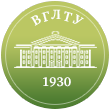Russian Federation
from 01.01.2015 until now Voronezh, Russian Federation
Russian Federation
Russian Federation
The work presents an overview of utilization of automobile transport. It has been established that the disposal of vehicles is their dismantling for spare parts. At the end of their useful lives, vehicles are valued as a source of spare parts and this has led to the creation of an industry for vehicle dismantling. The purpose of this study is to solve the problem with auto junk and increase discounts, the spread of the discount to new market segments, which will make the recycling program an effective tool to support the automotive industry and the economy of the country in the current conditions. It has been established that the disposal of vehicles is their dismantling for spare parts. At the end of their useful lives, vehicles are valued as a source of spare parts and this has led to the creation of an industry for vehicle dismantling. The purpose of this study is to solve the problem with auto junk and increase discounts, the spread of the discount to new market segments, which will make the recycling program an effective tool to support the automotive industry and the economy of the country in the current conditions. The problem of recycling transport is urgent in Russia, since about 7% of the fleet of cars cease to be in use every year, and the volume of abandoned broken-down vehicles and other waste of the transport complex annually increases by 8-10%. Effective disposal of obsolete cars is established in many developed countries, they have achieved almost complete disposal (without any landfill), where 85% by weight is used as secondary materials, and 15% as energy. Increasing discounts and extending the discount to new market segments in Russia will make the recycling program an effective tool to support the automotive industry and the economy of the country in the current conditions.
utilization, efficiency, landfill
1. Federal'nyy zakon ot 03.08.2018 N 283-FZ (red. ot 14.04.2023) "O gosudarstvennoy registracii transportnyh sredstv v Rossiyskoy Federacii i o vnesenii izmeneniy v otdel'nye zakonodatel'nye akty Rossiyskoy Federacii".
2. Muratkin G.V. Recikling tehnicheskih ob'ektov : uchebnoe posobie. – Tol'yatti : Izd-vo TGU, 2016. – 26 s.
3. Bobina, M. A. Ekologichnost' – osnova sovremennyh tehnologiy avtoreciklinga / M. A. Bobina, V. M. Ermolov // Molodoy uchenyy. – 2014. – № 11 (70). – S. 40-44. – Rezhim dostupa: https://moluch.ru/archive/70/12089/ (data obrascheniya: 23.05.2020).
4. Vaslyaev M.A. Razrabotka edinoy ekologo-orientirovannoy sistemy sboa i utilizacii vyshedshih iz ekspluatacii avtotransportnyh sredstv : dis. … kand. ekon. nauk : 08.00.05. – M. : GUU, 2007. – 205 s.
5. Kuldoshina V. V. Sovershenstvovanie tehnologicheskih processov i organizacii utilizacii tehniki v sisteme tehnicheskogo servisa APK : avtoref. dis. … kand. tehn. nauk : 05.20.03. – M. : MGAU, 2008. – 16 s.
6. Petrov R.L. O mirovom opyte organizacii nacional'nyh sistem avtoreciklinga // Recikling othodov. – 2008. – № 5. – S. 2-11.
7. Rasporyazhenie Pravitel'stva RF ot 4 dekabrya 2015 g. №2491-r.
8. Yacun A.V., Konovalov P.N., Konovalov N.P. Zhidkie produkty piroliza otrabotannyh avtomobil'nyh shin pod vozdeystviem SVCh // Himiya tverdogo topliva. – 2013. – № 4. – S. 60-62.
9. GOST 4754-97 «Shiny pnevmaticheskie dlya legkovyh avtomobiley, pricepov k nim, legkih gruzovyh avtomobiley i avtobusov osobo maloy vmestimosti» M.: IPK Izdatel'stvo standartov, 1998.




